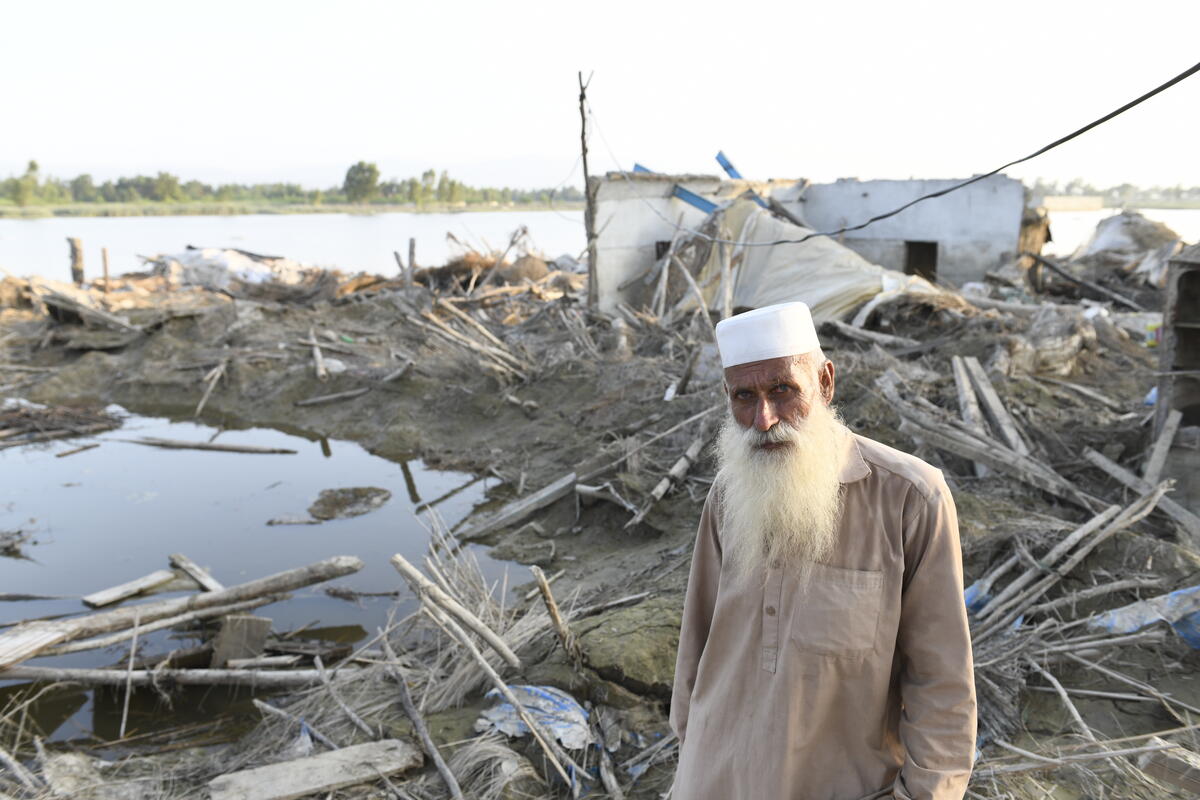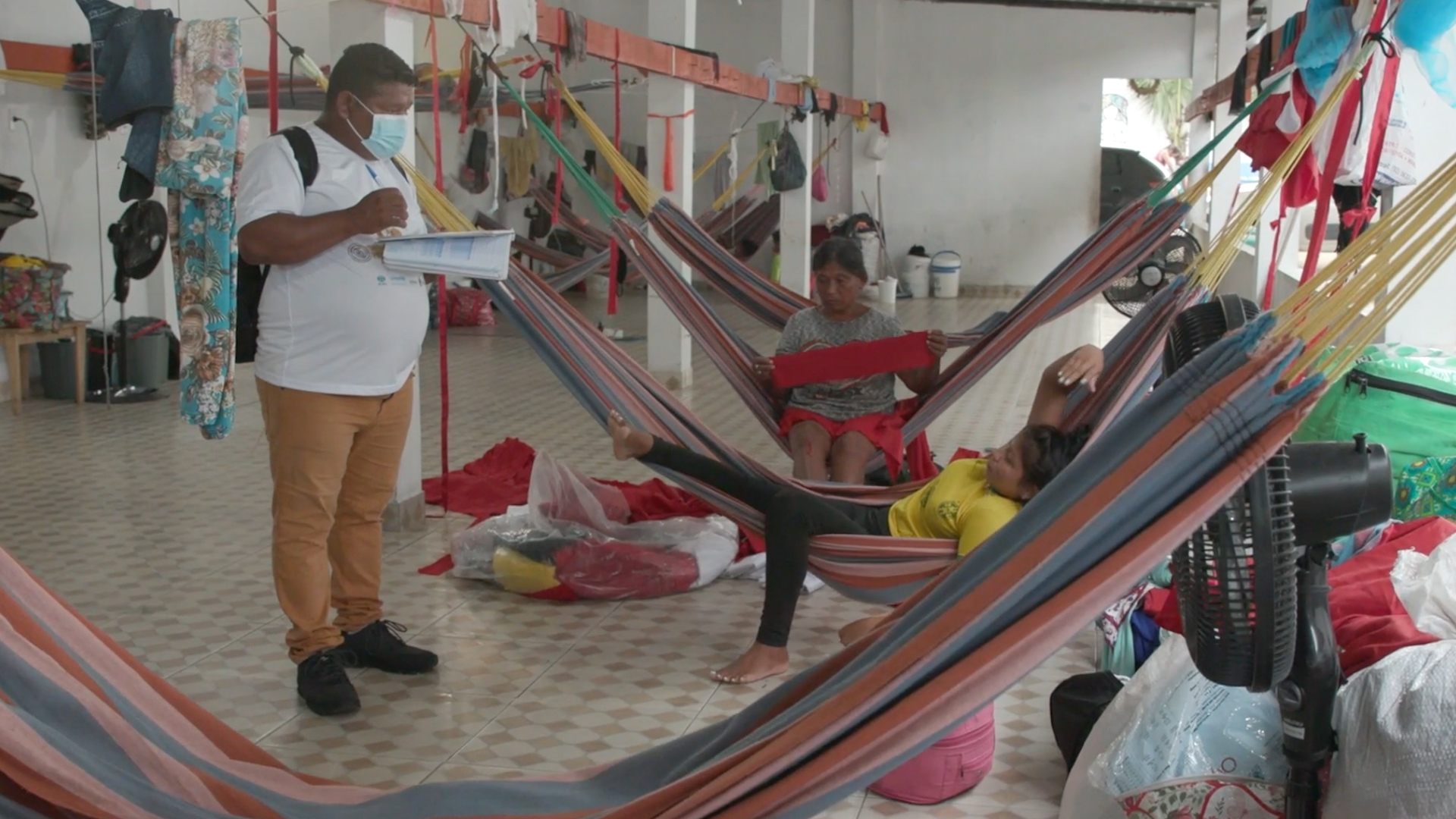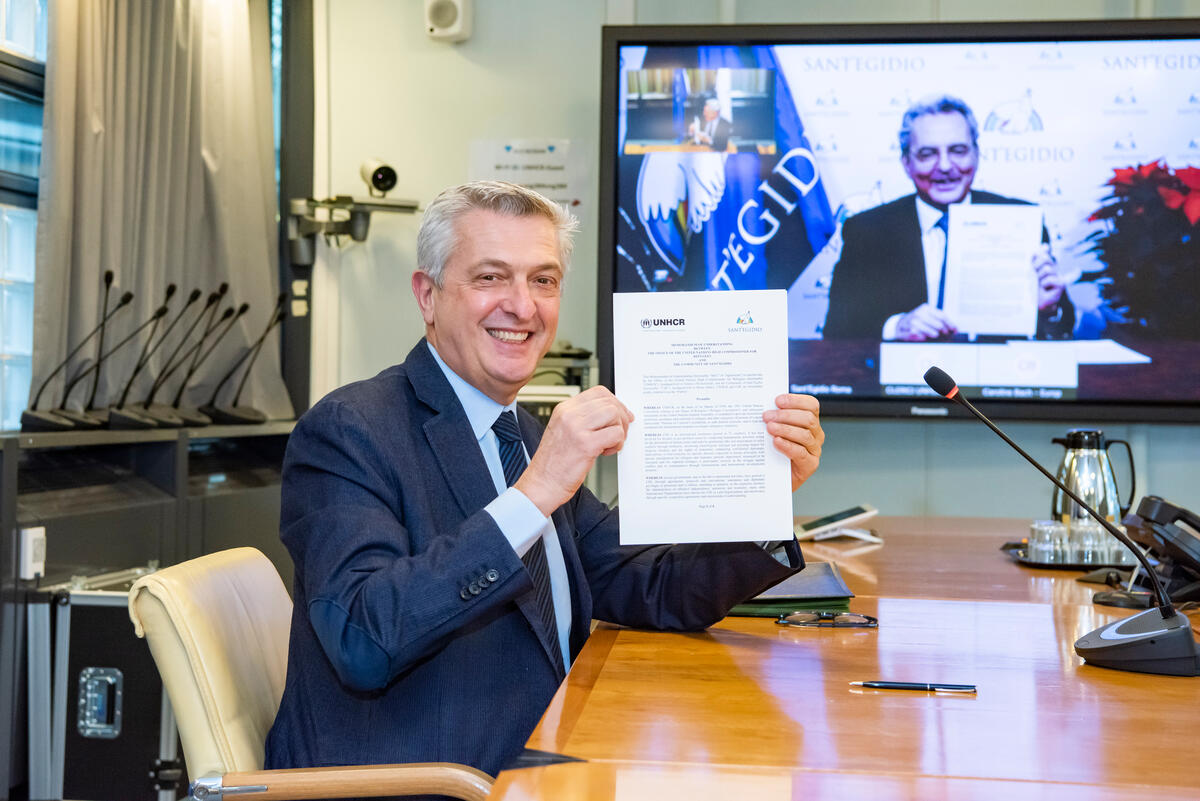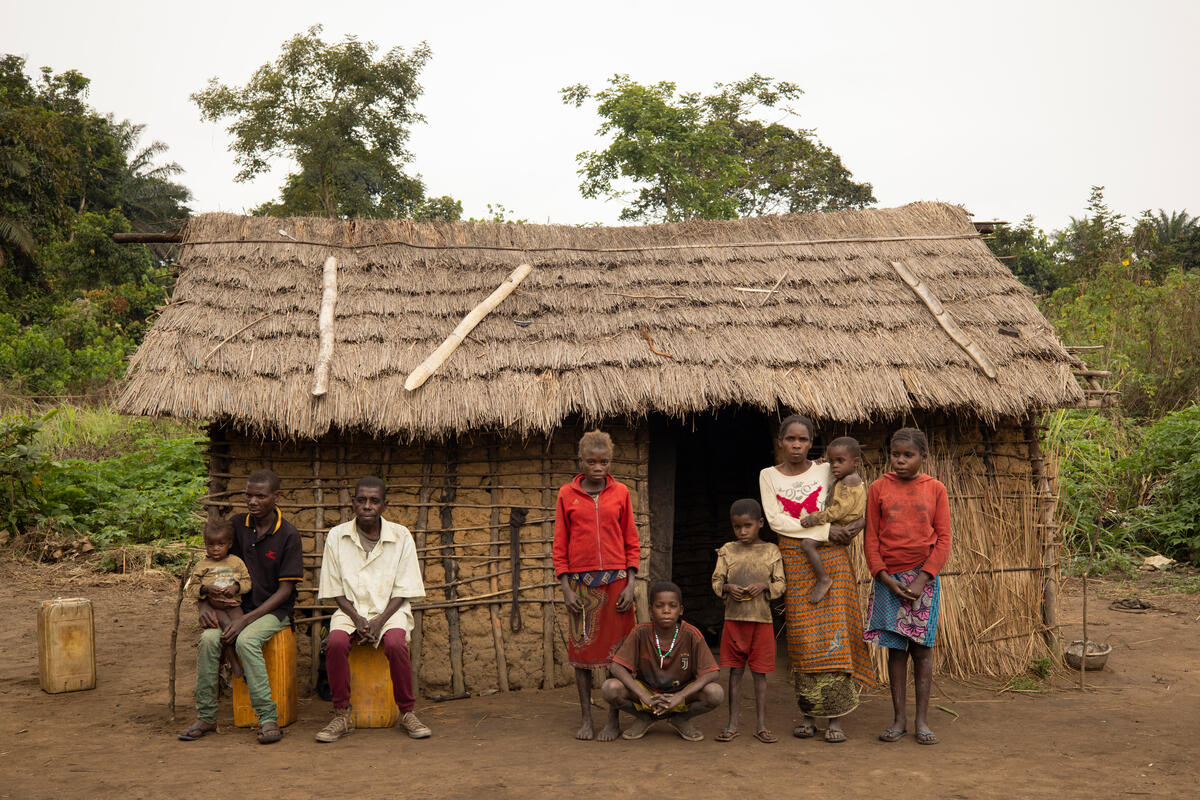UNHCR delivers emergency aid to indigenous people in Colombia
UNHCR delivers emergency aid to indigenous people in Colombia

PUERTO ALVIRA, Colombia, April 22 (UNHCR) - The UN refugee agency has organized a humanitarian mission to bring emergency aid to indigenous communities living along southern-central Colombia's Guaviare River.
Fourteen tons of food provided by UNHCR's sister agency, the World Food Programme (WFP), were last week delivered by boat and distributed to some 1,000 people in the riverside villages of Mocuare, Puerto Alvira and Barranco Colorado and the municipal centre of Mapiripan. The area is disputed by rival irregular armed groups, while the Colombian armed forces are trying to regain control of the territory.
All four locations face an extremely difficult humanitarian situation, with critical food shortages. Meanwhile, there is a high risk of displacement for inhabitants of the three villages on the banks of the Guaviare.
"We've heard there's going to be more fighting and that it is going to be worse than we have seen so far," said a local woman met by UNHCR during a food distribution in one of the villages. "Who would not be scared to hear that?"
Two of her daughters had fled earlier this month with their husbands and children. She'd had no news from them since and said she was worried. The woman's relatives left by foot and headed into the forest after waiting days for a boat that never came.
Hundreds of people have fled the area since the start of the year. In the village of Barranco Colorado, only about 40 families (around 200 people) from two indigenous groups are left. Puerto Alvira has lost an estimated 75 percent of its estimated 3,000-strong population and people are also fleeing from Mocuare.
Those who remain are often the poorest and most vulnerable. They are now virtually cut off from the rest of the world. Hardly any food is getting through and what can be found is very expensive. A small bottle of water costs four times more than in Bogota, the national capital.
The government has an extremely limited presence in the area, while the local economy - mainly focusing on fishing, hunting and bartering - was destroyed when illegal armed groups introduced the cultivation of coca, which is processed into cocaine.
UNHCR staff taking part in last week's mission said local medical facilities and supplies were inadequate. They noted an acute shortage of medicine in all three villages and said there appeared to be no means available for evacuating the sick in an emergency.
"I have two very sick people," the only nurse left in Barranco Colorado said. "One of them has acute malaria and I worry that he might die but I don't have even an aspirin or clean water to give him."
The local Church, representatives of the ombudsman's office and staff from the Colombian Ministry for Social Welfare took part in the mission with UNHCR and the WFP. As well as food rations, the mission distributed basic hygiene kits and school materials donated by the local municipality.
Most of the beneficiaries belonged to the Guyabero and Nukak Maku tribes, while a few non-indigenous families identified as extremely vulnerable also received assistance. Both the Guyabero and the Nukak Maku are indigenous to the Guaviare region. Many have been forced to flee their lands as a result of the armed conflict, putting at risk their survival as unique ethnic groups.
Under Colombian and international law, special efforts must be made to protect such groups from the devastating impact of losing their lands. Last week's mission was part of a series of preventive protection measures being undertaken to this end.
"Prevention of forced displacement by helping people stay on their lands with support and assistance before they are forced to flee is often the most effective form of protection," explained Jean-Noël Wetterwald, UNHCR representative in Colombia.
He added that the intervention in Guaviare was a concrete example of how much can be achieved through inter-institutional cooperation with local communities. UNHCR and WFP, together with their local partners, are putting in place several projects to help the indigenous people along the Guaviare River, including a school restaurant in Puerto Alvira and welfare programmes for elderly people and infants.
Discussing these plans to help them, local people in Puerto Alvira said they were beginning to see light at the end of the tunnel. "Some families who left are beginning to think it may be possible to come back, now that we are no longer so alone and forgotten," one man said.
There are 80 different indigenous groups in Colombia, who together make up 2 percent of the country's population. They have been forced to flee their homes in even greater percentages than the rest of their compatriots. At the end of 2007, some 2.4 million Colombians were registered with the government as victims of forced internal displacement.
By Marie-Hélène Verney in Puerto Alvira, Colombia








